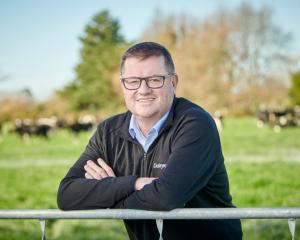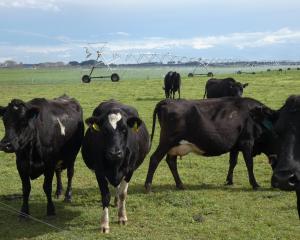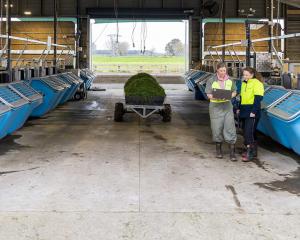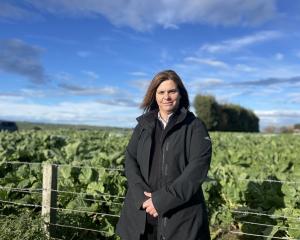
The a2 Milk Company gave $440,000 to 18 farms from the third round of its farm sustainability fund in New Zealand.
Mr Young owns two dairy farms.
About 850 cows were milked at his Hinemoa Heights farm in Clydevale, and about 1200 at Athelstane farm in Clinton.
He received $32,790 from the latest funding round to extend the trial. The project previously received $32,790 from the second round of funding.
A programme to replace the use of urea on his dairy platform was launched on Athelstane seven years ago.
The urea was being replaced with a fish hydrolusate — cooked and ground up salmon transformed into a liquid.
Dead salmon from the Big Glory Bay farm in Stewart Island were used to make the liquid.
The fish was applied with a liquid fertiliser sprayer three times a year in March, August and November.
Fish hydrolusate was applied on 70% of the milking platform at Hinemoa Heights, which supplies The a2 Milk Company.
Urea was spread on the other 30% of the milking platform.
Paddocks where up to 190kg of urea was once applied per hectare now had none.
The positive results from the use of the fish product included prolific clover growth, Mr Young said.
When urea was present, less clover grew and grass dominated.
He believed the fish product was producing results as good as urea if not better, "but we don’t have the science to prove it".
To identify scientific outcomes, a three-year project was launched, which was now in its second year.
Four trials were comparing outcomes paddocks with four different applications — fish hydrolusate, a solid fish product, urea and nothing.
He believed the fish hydrolusate was more effective if applied to young grass so clover could grow, rather than applying it to old pasture.
The a2 Milk Company chief legal and sustainability officer Jaron McVicar said funding was open to farmers supplying A1 protein free milk to Mataura Valley Milk or Synlait Milk.
The fund was established in 2022 and was a collaboration between The a2 Milk Company and Lincoln University to support farm projects which demonstrate an integrated approach to a sustainable future and had a meaningful impact across the community and environment.













